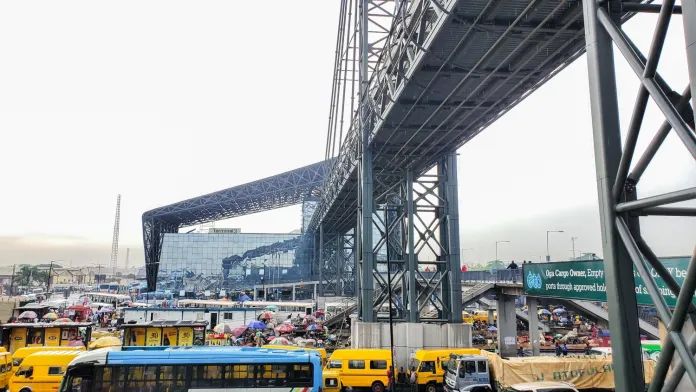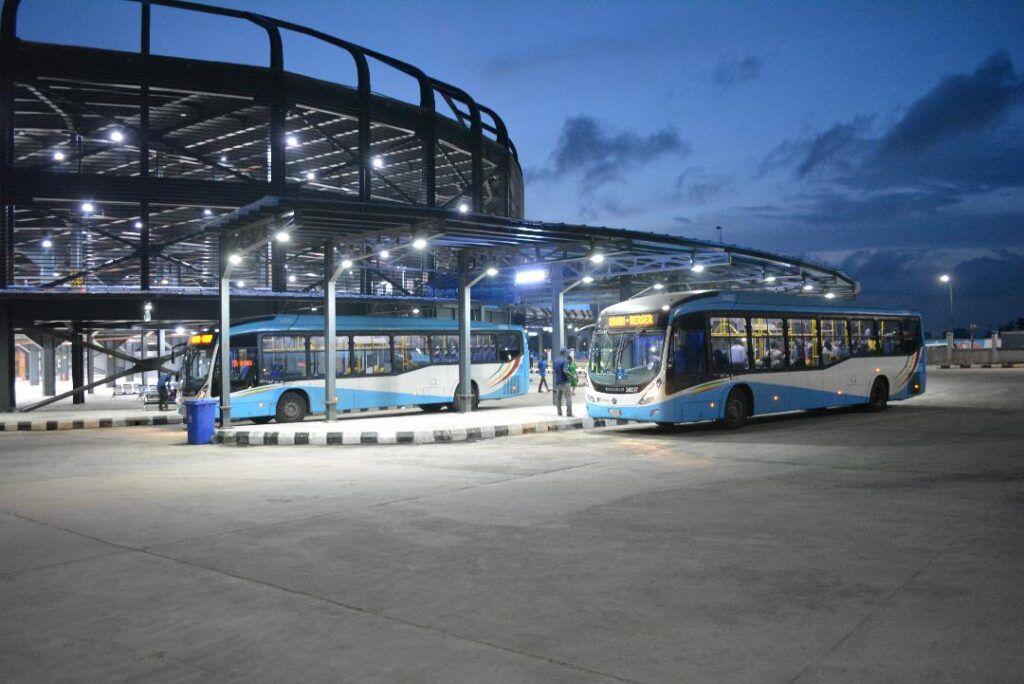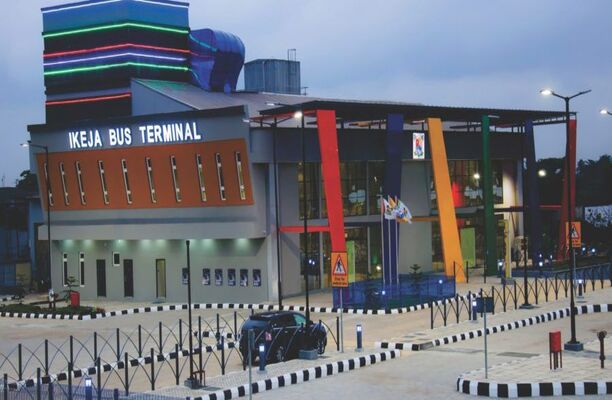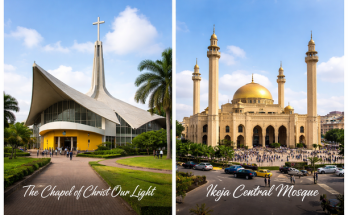By Sunkanmi Adewunmi
In Lagos’s bustling capital, even a bus stop is its own drama. Bus stops in Ikeja – from Oshodi to Computer Village, Allen Junction to Oba Akran – are “essential hubs for commuters”. Every morning, they transform into stages for urban theatre: conductors shouting destinations, touts hustling passengers, hawkers selling snacks, and preachers sermonizing through megaphones. Lagos State’s rapid pace means Ikeja’s bus stops never sleep – they are the city, encapsulated. As one recent travel blog notes of Oshodi, “the vibrant energy, diverse crowd, and the plethora of vendors selling everything from snacks to clothing make commuting…a unique experience” – and that chaotic spirit is alive at every stop in Ikeja too.
Morning at the Bus Stop
By dawn, Ikeja’s bus stops look like impromptu parties in suspense. Commuters stand or sit in awkward makeshift formations, “all clutching their bags like life jackets,” waiting for that first yellow danfo or shuttle. One blogger recalls waiting “patiently at the Ikeja bus stop,” scanning the dusty road for a clue of an approaching bus. Yet patience wears thin fast: as soon as a bus screeches in, the crowd suddenly goes from calm to frenetic. (A Lagosian wit quipped on social media that “every commuter at a Lagos bus stop is a normal person…until the bus arrives.” It’s the simple truth – the minute any ride appears, orderly queues turn into a brawl for space.)
Meanwhile, arguments over naira notes are routine: a ₦500 bill emerges and the conductor feigns to check the tyres, warning that “change no dey!” in a sing-song drawl. Shouts of “Abeg, I no get small change o!” ring out, often provoking eye-rolls or a second squabble. These little clashes – over seating, fares, and change – add to the accidental comedy.

Characters on the Pavement
The cast waiting at an Ikeja bus stop is as colorful as it is large. You have the conductors leaning from danfo doors, aggressively shouting destinations (“Ogba Ogba” or “Maryland wole Maryland”), their voices almost joining in a chorus with hawkers’ pitches. In one account, the bus park “milled with people. Area boys and street urchins were harassing drivers and conductors. Vendors of beverages were shouting themselves hoarse” just to make a sale. They hawk everything: “Yam, plantain, cucumber!” from a snack seller; new, shiny phone chargers from another; sachets of pure water; even peppermint sweets or small gadgets. Preachers also claim their pulpit here. As a Punch newspaper feature describes Lagos’s old molue buses, “Passengers…often found themselves in a situation where the preacher’s voice dominated the atmosphere, amplified by a megaphone” and Ikeja’s stops are no different. Every third or fourth day, you’ll see an itinerant pastor with a book, a bible, and a mic recruiting souls between “Hallelujah!” chants.
The Bus Arrives
Then, as suddenly as rainstorms, buses descend upon the stop. The screech of brakes is the dinner bell. Commuters, who moments ago were Zen masters of patience, turn into Olympic sprinters. The danfo’s yellow dust clouds billow, and somewhere a conductor sounds his horn like a battle cry. “Peeem!” goes the war-charger’s whistle. Legs scramble, elbows swing, and passengers shove softly at first (“Where?”), Then harder once the doors open. The scene is, in a word, pandemonium – one blogger captured it: “we were all waiting patiently…Then the chaos [hit].”
For anyone not in the thick of it, it might look like a well-coordinated dance; for commuters, it’s more like Riverdance meets Hunger Games. There are unspoken rules – let the old and pregnant board first (although sometimes it’s every man for himself), keep your yam bag secured, and if you do get the conductor to drop the bus a moment, prepare for five more people to slide in behind you. Kids skip onto laps, perfumes of armpits and last night’s broiler mix the air, and by the time the doors slam shut, there’s no room left to sneeze. Yet even amid this maelstrom, Lagosans find humor.

Lagos Commuting in Popular Culture
No honest Lagos commuter can resist joking about the ordeal. Twitter (now X), Instagram, and TikTok abound with memes of Danfo sagas. Lagos influencers take videos of the scramble: a conductor holding a smartphone steadies himself on a moving bus, shouting bus stops like a tickertape announcer. Others share comedy skits about bargaining with conductors over change or impromptu sermons from a passenger with a borrowed megaphone.
By noon, the morning madness gives way to a lull before the afternoon rush. But at any minute, the next chapter of the Ikeja bus-stop saga could begin. Each stop is like an open-air stage: conductors are actors, passengers are background extras, and the daily commute is always a comedy of errors. It’s a testament to Lagos’s spirit that despite the chaos – or perhaps because of it – so many find joy and humor in the madness. As Lagosians say with a grin, “Na so Lagos be.”








